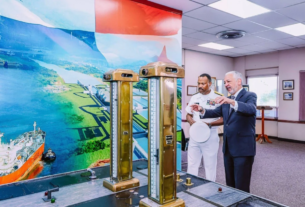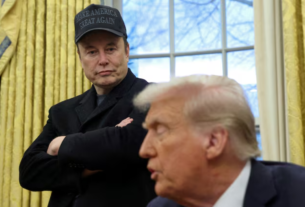European leaders are debating whether to increase defense spending as discussions over a Ukraine peacekeeping mission continue to divide nations. Some governments support deploying European troops, while others worry that such a move could escalate tensions with Russia. The debate comes as the war in Ukraine continues with no clear resolution in sight.
“We must prepare for all scenarios,” said NATO Secretary General Jens Stoltenberg. France and Poland have urged stronger military commitments, arguing that Europe must take greater responsibility for its own security. However, Germany and several other countries remain cautious, warning that direct military involvement could bring serious risks.
The European Union has already committed billions of euros in military aid to Ukraine. Many European nations have increased their defense budgets, with some reaching the NATO target of spending 2% of GDP on defense. Officials say that despite these efforts, more investment is needed to strengthen Europe’s long-term security.
You might wonder why this peacekeeping plan is controversial. Some leaders believe that sending European troops to Ukraine could help stabilize the region, but others fear it could be viewed as direct interference in the war. Russian officials have already warned that any foreign troop presence in Ukraine would be considered an act of aggression.
French President Emmanuel Macron has been one of the strongest supporters of increasing Europe’s defense spending. He has repeatedly called for European nations to take the lead on security rather than depending on NATO or the United States. Poland has also pushed for greater military action, warning that a weak response from Europe could embolden Russia.
Germany has taken a more cautious approach to the issue. Chancellor Olaf Scholz has stressed that direct military involvement could escalate the war beyond Ukraine’s borders. “Our focus should be on delivering weapons and financial support, not on deploying European troops,” he said in a recent speech.
Military analysts believe that even if a peacekeeping mission does not happen, European defense spending will continue to rise. The war in Ukraine has exposed gaps in Europe’s military capabilities, prompting several countries to invest more in weapons production. Finland and Sweden, two of NATO’s newest members, have also expanded their security efforts.
The European Commission has proposed additional funding for arms production and military training programs. This funding would help Ukraine replenish its dwindling ammunition supplies while strengthening Europe’s defense industry. Some leaders believe that a long-term investment in military production is necessary, regardless of what happens in Ukraine.
Defense ministers from across Europe are expected to meet next month to discuss their next steps. Some will push for a more active role in Ukraine, while others will argue for continued financial and logistical support instead of direct involvement. The meeting will likely determine the future of Europe’s military strategy.
For now, European nations remain divided on how to approach the conflict. Some argue that peacekeepers could help stabilize the region, while others fear that deploying troops would further escalate tensions. The debate over European military involvement is far from over, and the decisions made in the coming months will shape the future of security in the region.
Leaders agree that military readiness and financial commitments must increase to ensure long-term stability. Even if no peacekeeping force is deployed, European nations will likely continue expanding their defense budgets. The war in Ukraine has already changed Europe’s approach to security, and those changes are expected to continue in the years ahead.




